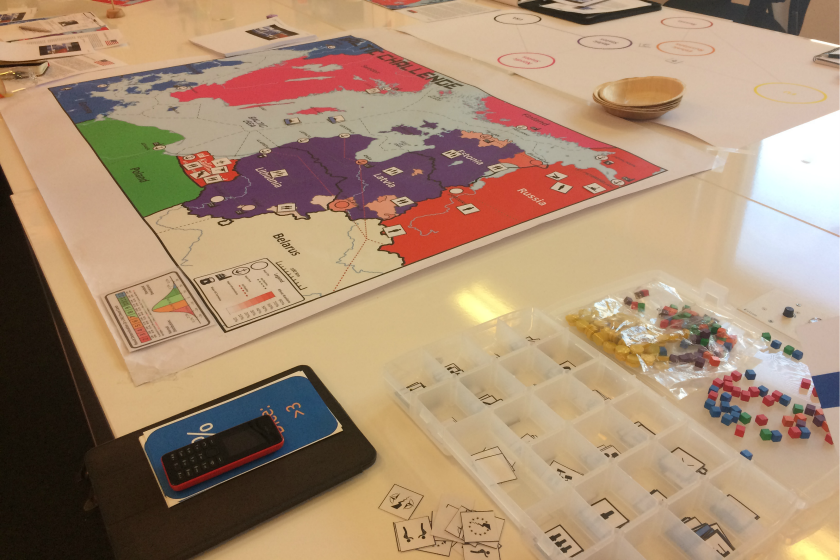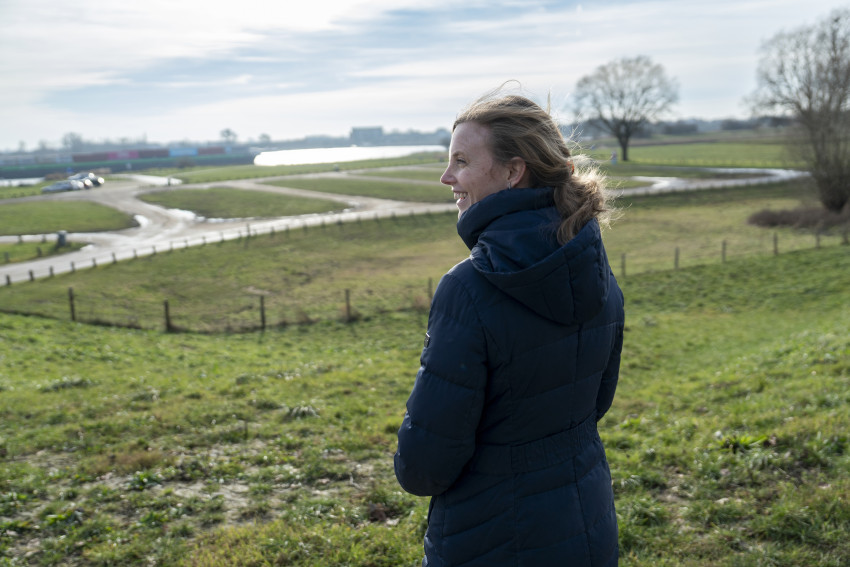
Playing a board game to learn about war
Research institute TNO has developed a kind of board game that helps players to understand the threat posed by hybrid warfare. That is a type of conflict in which economic, social and military weaknesses are exploited by a nation state. The board game presents players with events and asks them to respond.
TNO set up the Hybrid Strategies Lab where the game can be played. The lab also makes the game available to other research institutes or ministries worldwide. The players are primarily decision makers from the ministries of Defence, Justice & Security and Foreign Affairs. At a conference earlier this week about military misinformation, project leader Rick Meessen also referred to a game in which the situation in the Baltic states is re-enacted. In Lithuania, Latvia and Estonia, Russia is currently carrying out campaigns to undermine confidence in the local governments or legitimise Russian activity at the border. But hotbeds like Syria are also studied using TNO's board game.
A GAME OF RISK
The game itself is similar to Risk: a topographical map with chips that represent specific types of attack. However, the game play is different: each round, the various players who represent the EU, the Baltic States and Russia, for instance, state how they wish to respond to a new development. A moderator advises players about the consequences of their actions.
According to TNO, this type of game is good for creating greater awareness: decision makers realise the complexity of issues such as 'fake news', aggressive corporate takeovers in a country, or troop concentrations along a border. But it has its limitations, emphasises Meessen. 'It assumes a lot of knowledge from each party involved to play the game properly. And for that you need a substantial degree of prior knowledge and effective supervision.' But he also sees a dominant train of thought among Western players that perhaps is not fitting to the role they are assuming. 'People from Western countries often think in terms of win-win, and try to solve conflicts on that basis. But for some countries, the ultimate goal of war is a zero sum game, with nobody winning.'
BAD FOR DECISION MAKING
Partly due to these limitations, the games do not seem to work well for decision-making purposes, as the situations in a hybrid war are often too complex to comprehend using just a board game. However, since the hybrid form of waging war is relatively new to many people, the game may help to face foreign threats with greater resilience in future.
If you found this article interesting, subscribe for free to our weekly newsletter!
Meer artikelen

Hoe gaat het met de energietransitie in Europa?

Martijn Otten: Met techniek het verschil maken

Martine Stam: Water is de rode draad in mijn leven

Kirsten Steinbusch: Iedereen kan iets betekenen in de transitie naar circulair
Nieuwste artikelen

Hoe gaat het met de energietransitie in Europa?

Martijn Otten: Met techniek het verschil maken




